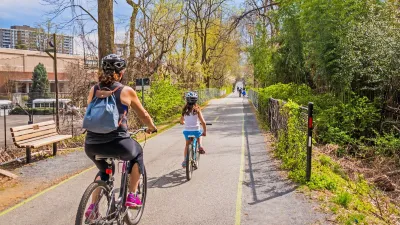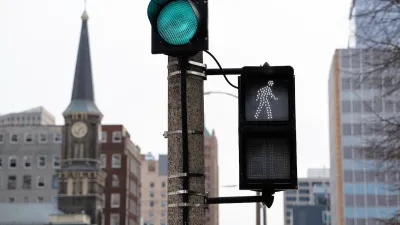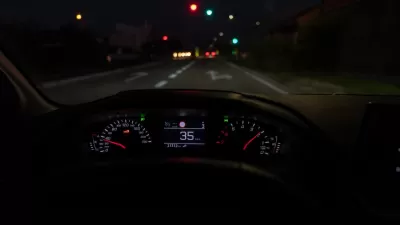The refusal of the Boston Police Department to report crashes to the state's Registry of Vehicles means that the city misses out on state funding to improve pedestrian and traffic safety.
Nestor Ramos explains that Boston's better than average pedestrian safety record is more spurious than sterling, "[the] state’s records on pedestrian accidents in Boston capture only a fraction of such accidents here. That is because the Boston Police Department has refused for years to report most crashes — pedestrians, bikes, cars, and everything else — to the Registry of Motor Vehicles. Officers are needed on their beats, police say, not filling out extra paperwork for the state’s databases."
That negligence has led to unfortunate policy consequences for Boston's pedestrians: "But without a clear picture of crash figures, state Department of Transportation efforts to make roads safer for pedestrians do not reach the state’s largest, busiest city. Just this spring, the city potentially lost a piece of a half-million-dollar state program, and potentially much more in years past, because the city does not fully report its accidents."
FULL STORY: Most Boston pedestrian accidents go unreported

Trump Administration Could Effectively End Housing Voucher Program
Federal officials are eyeing major cuts to the Section 8 program that helps millions of low-income households pay rent.

Planetizen Federal Action Tracker
A weekly monitor of how Trump’s orders and actions are impacting planners and planning in America.

Ken Jennings Launches Transit Web Series
The Jeopardy champ wants you to ride public transit.

Washington Legislature Passes Rent Increase Cap
A bill that caps rent increases at 7 percent plus inflation is headed to the governor’s desk.

From Planning to Action: How LA County Is Rethinking Climate Resilience
Chief Sustainability Officer Rita Kampalath outlines the County’s shift from planning to implementation in its climate resilience efforts, emphasizing cross-departmental coordination, updated recovery strategies, and the need for flexible funding.

New Mexico Aging Department Commits to Helping Seniors Age ‘In Place’ and ‘Autonomously’ in New Draft Plan
As New Mexico’s population of seniors continues to grow, the state’s aging department is proposing expanded initiatives to help seniors maintain their autonomy while also supporting family caregivers.
Urban Design for Planners 1: Software Tools
This six-course series explores essential urban design concepts using open source software and equips planners with the tools they need to participate fully in the urban design process.
Planning for Universal Design
Learn the tools for implementing Universal Design in planning regulations.
Heyer Gruel & Associates PA
Ada County Highway District
Institute for Housing and Urban Development Studies (IHS)
City of Grandview
Harvard GSD Executive Education
Toledo-Lucas County Plan Commissions
Salt Lake City
NYU Wagner Graduate School of Public Service





























